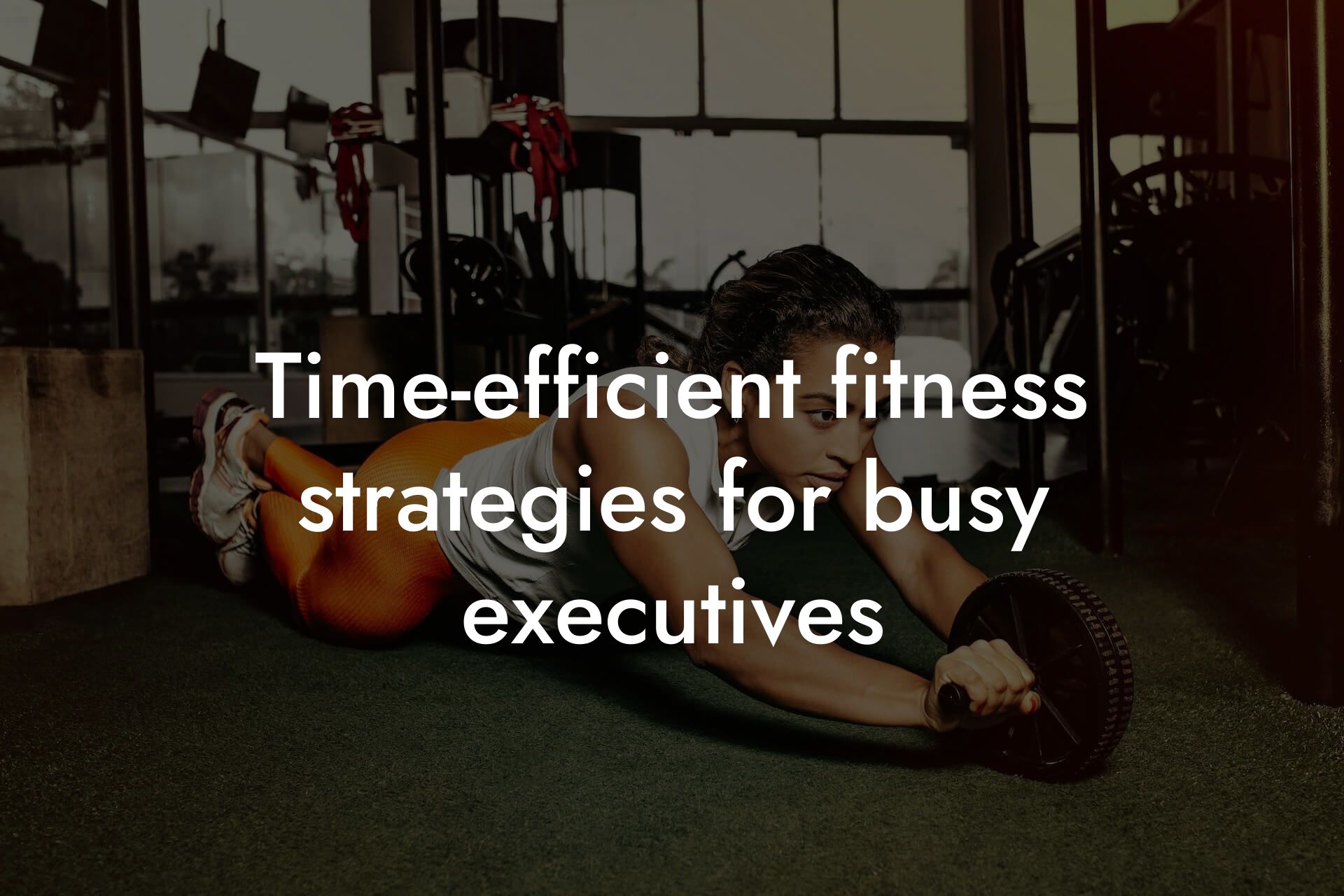As high-earning professionals, you understand the importance of peak performance in your career. However, what you may not realize is that your physical fitness plays a significant role in your leadership effectiveness. At Tano Performance Group, we're committed to helping you unlock your full potential by providing comprehensive body assessments using our state-of-the-art DEXA machine. In this article, we'll delve into the connection between physical fitness and leadership effectiveness, and explore how prioritizing your physical health can take your business to the next level.
Table of Contents
- The Impact of Physical Fitness on Cognitive Function
- The Role of Exercise in Reducing Stress and Anxiety
- The Connection Between Physical Fitness and Emotional Intelligence
- The Impact of Physical Fitness on Confidence and Charisma
- The Role of Physical Fitness in Building Resilience
- The Connection Between Physical Fitness and Creativity
- The Impact of Physical Fitness on Sleep Quality
- How to Prioritize Physical Fitness as a Busy Professional
- Frequently Asked Questions
The Impact of Physical Fitness on Cognitive Function
Physical fitness has a profound impact on cognitive function, which is essential for effective leadership. Regular exercise has been shown to improve memory, concentration, and problem-solving skills. A study published in the Journal of Applied Physiology found that exercise improves blood flow to the brain, leading to enhanced cognitive function. This means that physically fit leaders are better equipped to make informed decisions, think critically, and adapt to changing circumstances.
The Role of Exercise in Reducing Stress and Anxiety
Leadership can be a high-stress profession, and chronic stress can have devastating effects on both physical and mental health. Exercise is a natural stress-reliever, and regular physical activity has been shown to reduce symptoms of anxiety and depression. A study published in the Harvard Business Review found that exercise reduces stress and anxiety by releasing endorphins, also known as "feel-good" hormones. This means that physically fit leaders are better equipped to manage stress and make clear-headed decisions, even in high-pressure situations.
The Connection Between Physical Fitness and Emotional Intelligence
Emotional intelligence is a critical component of effective leadership, and physical fitness plays a significant role in its development. Exercise has been shown to improve self-awareness, empathy, and social skills, all of which are essential for building strong relationships and making informed decisions. A study published in the Journal of Sport and Exercise Psychology found that physically fit individuals are more likely to exhibit high emotional intelligence, which is critical for effective leadership.
The Impact of Physical Fitness on Confidence and Charisma
Confidence and charisma are essential qualities for effective leaders, and physical fitness can have a profound impact on both. Regular exercise can improve body composition, leading to increased confidence and self-esteem. A study published in the International Journal of Sport and Exercise Psychology found that physically fit individuals are more likely to exhibit confidence and charisma, which are critical for inspiring and motivating teams.
The Role of Physical Fitness in Building Resilience
Leadership can be a demanding profession, and resilience is essential for overcoming obstacles and achieving success. Physical fitness plays a critical role in building resilience, as regular exercise can improve mood, reduce stress, and enhance overall well-being. A study published in the Journal of Occupational and Environmental Medicine found that physically fit individuals are more resilient and better equipped to handle stress and adversity.
The Connection Between Physical Fitness and Creativity
Creativity is a critical component of effective leadership, and physical fitness can have a profound impact on creative thinking. Exercise has been shown to improve cognitive function, leading to increased creativity and innovation. A study published in the Journal of Experimental Psychology: Learning, Memory, and Cognition found that physically fit individuals are more likely to exhibit creative thinking and problem-solving skills.
The Impact of Physical Fitness on Sleep Quality
Sleep quality is essential for effective leadership, and physical fitness can have a profound impact on sleep patterns. Regular exercise can improve sleep quality, leading to increased energy, focus, and productivity. A study published in the Journal of Clinical Sleep Medicine found that physically fit individuals are more likely to experience improved sleep quality, which is critical for effective leadership.
How to Prioritize Physical Fitness as a Busy Professional
As a busy professional, it can be challenging to prioritize physical fitness. However, it's essential to make time for exercise and self-care. Here are a few tips to get you started:
Start small: Begin with short, manageable workouts and gradually increase intensity and duration.
Find an exercise you enjoy: Engage in physical activities that bring you joy, whether it's running, swimming, or yoga.
Schedule it in: Treat exercise as a non-negotiable part of your daily routine, just like meetings and deadlines.
Invest in a comprehensive body assessment: Use a DEXA machine to gain a deeper understanding of your body composition and identify areas for improvement.
Make it a habit: Consistency is key when it comes to physical fitness. Aim to exercise at least three times per week, and make it a habit.
By prioritizing physical fitness, you can unlock your full potential as a leader and take your business to the next level. Remember, physical fitness is not just about aesthetics; it's about optimizing your performance, increasing your confidence, and making informed decisions. At Tano Performance Group, we're committed to helping you achieve your goals and unlock your full potential.
Frequently Asked Questions
What is the connection between physical fitness and leadership effectiveness?
Research has shown that there is a significant correlation between physical fitness and leadership effectiveness. Physically fit leaders tend to have better cognitive function, higher energy levels, and improved emotional intelligence, all of which are essential qualities for effective leadership.
How does physical fitness impact cognitive function?
Regular exercise has been shown to improve cognitive function by increasing blood flow to the brain, promoting neuroplasticity, and reducing inflammation. This can lead to improved concentration, memory, and decision-making abilities, all of which are critical for effective leadership.
What are the benefits of regular exercise for leaders?
Regular exercise can provide numerous benefits for leaders, including improved mental clarity, increased confidence, enhanced creativity, and better stress management. These benefits can translate to improved leadership performance and decision-making.
How does physical fitness impact emotional intelligence?
Physically fit leaders tend to have higher emotional intelligence, which is critical for effective leadership. Emotional intelligence enables leaders to better understand and manage their own emotions, as well as those of their team members, leading to improved relationships and more effective communication.
What role does sleep play in physical fitness and leadership effectiveness?
Sleep is essential for physical recovery and repair, and is critical for cognitive function and emotional intelligence. Leaders who prioritize sleep tend to perform better, make better decisions, and have improved relationships with their team members.
How can leaders prioritize physical fitness in their busy schedules?
Leaders can prioritize physical fitness by scheduling exercise into their daily routine, finding activities they enjoy, and incorporating physical activity into their daily commute or workday. Even small amounts of exercise, such as taking the stairs instead of the elevator, can make a significant difference.
What are some exercises that are particularly beneficial for leaders?
Exercises that improve cardiovascular health, such as running or cycling, can be particularly beneficial for leaders. Strength training exercises, such as weightlifting, can also improve cognitive function and emotional intelligence. Yoga and other mindfulness exercises can also be beneficial for reducing stress and improving emotional intelligence.
How does physical fitness impact leadership presence?
Physically fit leaders tend to exude confidence and authority, which can improve their leadership presence. When leaders take care of their physical health, they are more likely to project a sense of confidence and competence, which can inspire trust and respect from their team members.
Can physical fitness improve leadership resilience?
Yes, physical fitness can improve leadership resilience by reducing stress, improving mood, and enhancing cognitive function. Physically fit leaders are better equipped to handle the demands of leadership and bounce back from setbacks and challenges.
How does physical fitness impact leadership communication?
Physically fit leaders tend to communicate more effectively, as they are more confident, focused, and emotionally intelligent. This can lead to improved relationships with team members, stakeholders, and clients.
What are some common barriers to physical fitness for leaders?
Common barriers to physical fitness for leaders include lack of time, lack of motivation, and lack of access to fitness resources. However, with a little creativity and prioritization, leaders can overcome these barriers and incorporate physical fitness into their busy schedules.
How can leaders overcome the "I don't have time" excuse?
Leaders can overcome the "I don't have time" excuse by scheduling exercise into their daily routine, finding exercises that can be done in short bursts, and incorporating physical activity into their daily commute or workday.
What role does nutrition play in physical fitness and leadership effectiveness?
Nutrition plays a critical role in physical fitness and leadership effectiveness. A healthy diet can improve energy levels, cognitive function, and emotional intelligence, all of which are essential for effective leadership.
How can leaders prioritize nutrition in their busy schedules?
Leaders can prioritize nutrition by meal prepping, packing healthy snacks, and avoiding sugary and processed foods. Even small changes, such as drinking more water and eating more fruits and vegetables, can make a significant difference.
What are some common myths about physical fitness and leadership?
Common myths about physical fitness and leadership include the idea that leaders are too busy to exercise, that exercise is a luxury, and that physical fitness is not relevant to leadership effectiveness. However, research has shown that physical fitness is essential for effective leadership.
How can leaders measure the impact of physical fitness on their leadership effectiveness?
Leaders can measure the impact of physical fitness on their leadership effectiveness by tracking their physical activity levels, monitoring their cognitive function and emotional intelligence, and soliciting feedback from team members and stakeholders.
What are some resources for leaders who want to improve their physical fitness?
There are numerous resources available for leaders who want to improve their physical fitness, including fitness apps, personal trainers, and online workout programs. Leaders can also consult with their healthcare providers for personalized advice and guidance.
How can leaders incorporate physical fitness into their company culture?
Leaders can incorporate physical fitness into their company culture by providing access to fitness resources, encouraging physical activity during work hours, and promoting a culture of wellness and self-care.
What are the benefits of a physically fit team?
A physically fit team tends to be more productive, more engaged, and more resilient. Physically fit team members are also more likely to have improved cognitive function, emotional intelligence, and leadership skills.
How can leaders support their team members in their physical fitness journeys?
Leaders can support their team members in their physical fitness journeys by providing access to fitness resources, offering fitness classes or workshops, and encouraging physical activity during work hours.
What is the role of physical fitness in leadership development?
Physical fitness plays a critical role in leadership development, as it can improve cognitive function, emotional intelligence, and leadership skills. Physically fit leaders are better equipped to handle the demands of leadership and are more likely to inspire trust and respect from their team members.
How can leaders prioritize physical fitness in their leadership development plans?
Leaders can prioritize physical fitness in their leadership development plans by incorporating physical activity into their daily routine, setting fitness goals, and seeking out fitness resources and support.
What are some common mistakes leaders make when it comes to physical fitness?
Common mistakes leaders make when it comes to physical fitness include neglecting their own physical health, prioritizing work over self-care, and failing to provide support and resources for their team members.
How can leaders avoid burnout and maintain their physical fitness?
Leaders can avoid burnout and maintain their physical fitness by prioritizing self-care, setting boundaries, and taking regular breaks. They can also delegate tasks, seek out support, and prioritize their physical and mental health.
Here are some related articles you might love...
- The importance of DEXA scans for business leaders
- Time-efficient fitness strategies for busy executives
- Strategies for building resilience in high-pressure roles
- Maintaining fitness during intense work travel
- The impact of body composition on executive presence
- How to integrate exercise into a packed executive schedule
- Nutrition tips for peak performance in the boardroom
- How physical fitness can boost executive decision-making
- How to manage stress and prevent burnout as a CEO
Zak Faulkner
Zak Faulkner is a leading authority in the realm of physical health and body composition analysis, with over 15 years of experience helping professionals optimise their fitness and well-being. As one the experts behind Tano Performance Group, Zak has dedicated his career to providing in-depth, science-backed insights that empower clients to elevate their physical performance and overall health.
With extensive knowledge of DEXA technology, Zak specializes in delivering comprehensive body assessments that offer precise data on body fat, muscle mass, bone density, and overall physique. His expertise enables individuals to make informed decisions and achieve their fitness goals with accuracy and confidence. Zak’s approach is rooted in a deep understanding of human physiology, combined with a passion for helping clients unlock their full potential through personalised strategies.
Over the years, Zak has earned a reputation for his commitment to excellence, precision, and client-focused service. His guidance is trusted by top professionals who demand the best when it comes to their health. Whether advising on fitness programs, nutritional strategies, or long-term wellness plans, Zak Faulkner’s insights are a valuable resource for anyone serious about taking their health and fitness to the next level.
At Tano Performance Group, Zak continues to lead our Content Team revolutionising how professionals approach their physical health, offering unparalleled expertise that drives real results.




